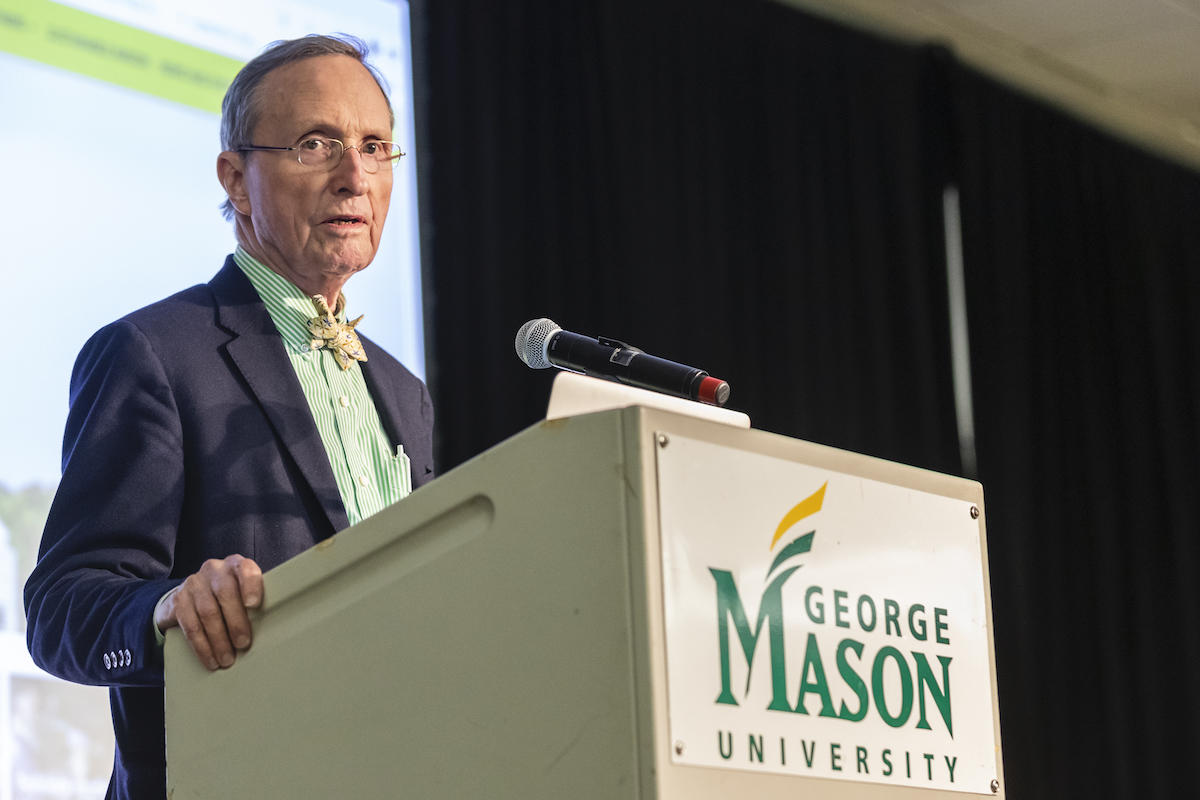The planet’s environmental challenges have grown in scope and in number over the decades, but a recent United Nations report authored by a group including George Mason University’s Thomas Lovejoy may offer a possible roadmap to a long-term solution.
“They figured out how to really communicate it,” said Lovejoy, a University Professor in the Department of Environmental Science and Policy within the College of Science. “It was a long overdue statement about the global environment. The Secretary-General minced no words about the state of the environmental challenges ahead, so it got a lot of attention.”
Lovejoy, who is often referred to as the “godfather of biodiversity,” was among the roughly 100 scientists serving on a Scientific Advisory Group that helped craft the U.N.’s “Making Peace with Nature” report that envisions a sustainable economy driven by renewable energy and nature-based solutions that will create new jobs, cleaner infrastructure and a more resilient future.
Aiming to influence policymakers, the report makes a strong scientific case for the need for urgency in protecting and restoring our planet from climate change, biodiversity loss and pollution.
Lovejoy said that it was critical that world leaders heed the message and make the changes necessary to fulfill the goals of the 2015 Paris Agreement and limit the temperature rise to 1.5 degrees Celsius by the end of the century.
At the current rate, global warming will reach 1.5 degrees Celsius higher by around 2040 or earlier and at least 3 degrees warmer by 2100, according to the report. The rising temperatures will lead to a significant shift in climate zones and the melting of ice sheets and glaciers, accelerating sea level rise and more frequent and more intense extreme events that will further threaten people and nature.
In the report, U.N. Secretary-General António Guterres called humanity’s war on nature “senseless and suicidal.”
“The consequences of our recklessness are already apparent in human suffering, towering economic losses and the accelerating erosion of life on Earth,” Gutteres said.
The report called for transformative system change as a prerequisite for a sustainable future.
Suggestions included promises of significantly reduced carbon gas emissions into the atmosphere by every country, reduced chemical pollution, eliminating deforestation, more sustainable land management, ecosystem restoration and fisheries reform, among other actions.
These plans would require additional significant financial investments in the technology necessary, providing incentives for systemic change and strong enforcement of the laws, educating policymakers and the general public, and soliciting pledges from wealthier nations to help less fortunate ones move forward in the process. Acting now would be far cheaper than be forced to do so later, the report said.
The report cited the world’s immediate response to the COVID-19 global pandemic as proof that it can collectively act quickly and decisively. It just needs to have the same sense of urgency with regards to global warming.
“When you add it all up, it’s really not a pretty picture,” Lovejoy said. “But it’s really important to get that message out there and everybody take it seriously.”

